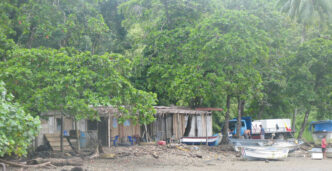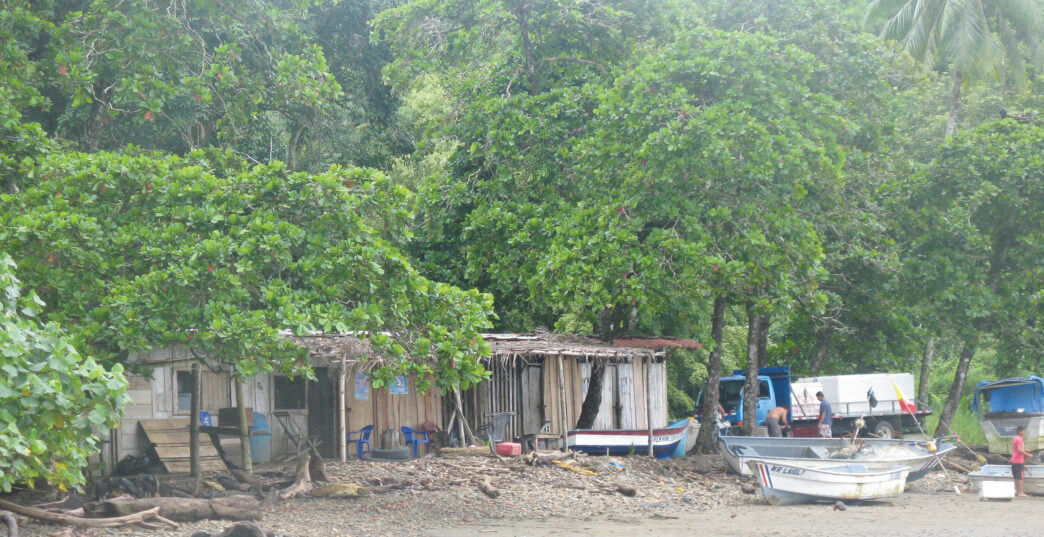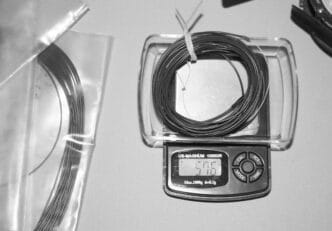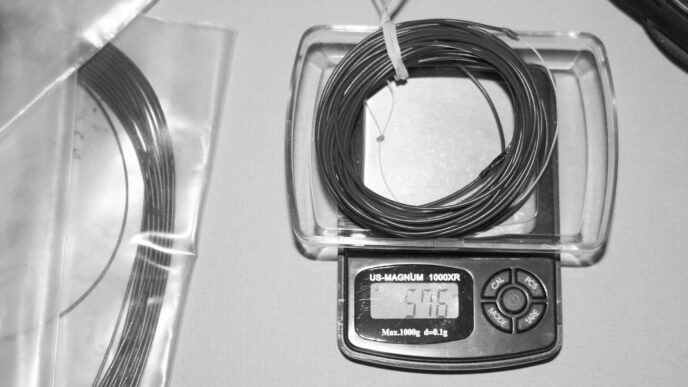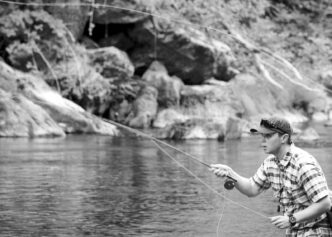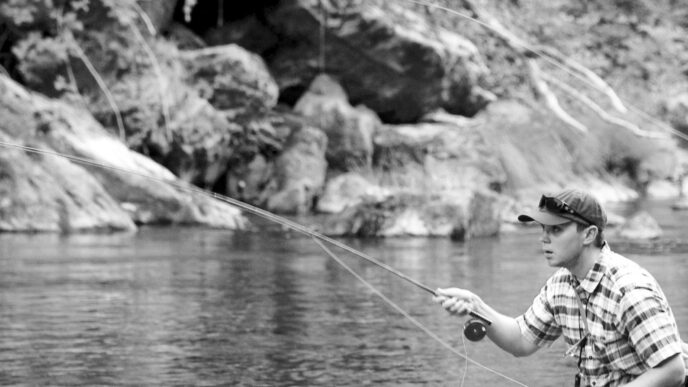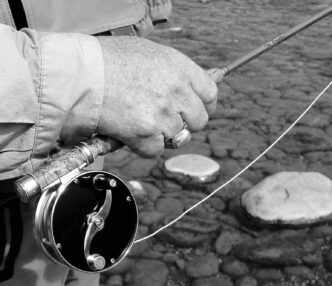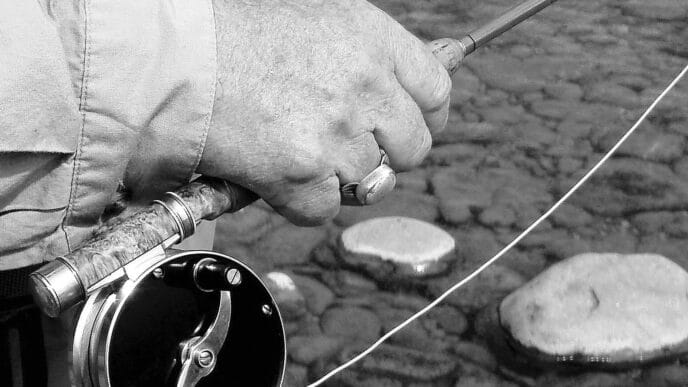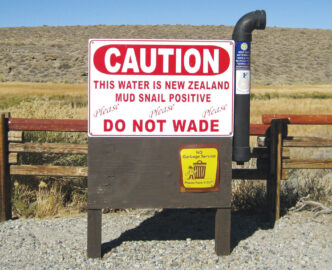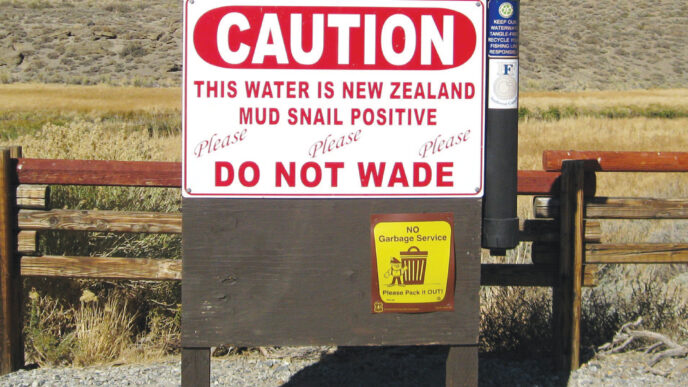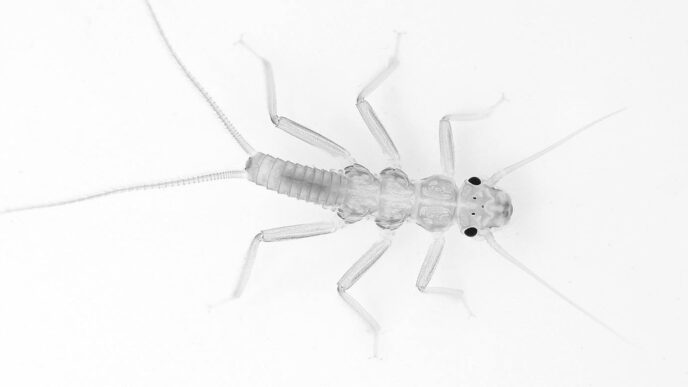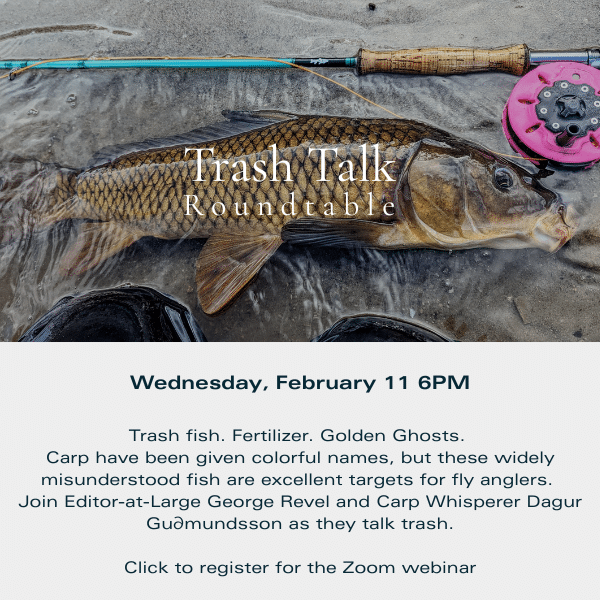You know the deal. Son and his wife can’t get it straight. Their own sons, angels both of them, float from household to household, school to school. The two surviving great-grandparents are saints, willing to do anything for children, but everyone knows it’s just not right that they’re still parenting little boys. One of the grandmothers hates the mere name; with her looks, she still expects a very different show of respect. The other grandmother, who wants nothing more than to help, lives far, far away, which doesn’t stop her from visiting at least once, sometimes even twice a year, this time with you in tow, because — well, it’s complicated.
Or something like that.
Fishing, anyway, isn’t always first on the list. Life has a way of toying with our priorities. At least that’s the common wisdom, a sensible way to view the passage of time in the face of the single irrefutable truth that the next twenty years will certainly teach you if, for some reason, the past twenty didn’t: one day you will grow too old to fish.
In other words, pay attention. Every year, every season, draws each one of us closer to that fateful day. Which is only to suggest that what matters most in all of this is both timeless and fiercely sublime: Even nowhere is a better place to go fishing than not going fishing at all. Captain Erik doesn’t know much about fly fishing. Brother of the beautiful grandmother, she who refuses the name, he tends a net that hangs near an offshore reef, visiting it twice daily to pluck pargos and snappers and the occasional pelagic speedster from its democratic mesh. Not quite family, we both share allegiances to parties engaged by the two young grandsons, which may have something to do with Captain Erik’s hourly rate, twenty dollars less than anything else I’ve been quoted in town.
Then again, maybe it’s exactly our proximity to matters ashore that prompts Captain Erik to cut me a deal, one that allows us both to retreat to the confines of sport on the water.
We meet on the beach below a tangle of shacks nesting in the shadows at jungle’s edge. The words are more glamorous than the scene. Thirty-eight years ago, I came upon this very same beach and felt certain there was nothing about it that would ever make me visit again. Too much surf for fishing from shore, too little in the way of contour to give the surf shape to ride.
Things look about the same today. Captain Erik’s boat waddles in the wash of a rising tide. We load my rods and gear bag and swing the bow of the boat toward the surf. A little set lifts the gunwales past my waist. Captain Erik says something in Spanish that I take to mean Hop in.
What we all end up asking ourselves, of course, is if any of this really matters. I don’t think I’m just talking about fishing.
That just happens to be as good a place as any to start.
It’s pretty easy to make a case for a couple of tender-hearted grandkids — even if they’re not your own. Every one of them deserves the best we can give. Part of that means a world where wild things still roam. If a day on the water doesn’t remind you of that, you might ask yourself what’s gone wrong.
And why.
Or do something — anything — that might give a child a chance to hope for a world you still long for, too.
Yet when the decades of fishing are finally lined up like a six-pack of empty beer bottles, how are you going to claim that some of it wasn’t maybe just a wee bit of wasted time?
And if some of it, why not all? Okay, you caught some fish.
Now, can’t we all do better than that?
Captain Erik leans into the tiller, holding the boat as close as he dares to a mountain of reef rising and falling through snarls of foam and unruly current. Sounds alone can torment your back cast — coarse, guttural, sucking growls that soon erase the awful physics at hand, bringing to mind, instead, a cornered beast, all the more dangerous for its unfathomable wounding.
The wind adds a fresh dimension. I’m an experienced saltwater fly fisher, I recall telling Captain Erik, while I pluck the heavy Amigo from the back of my hat. I throw a ragged loop into the maw of the reef, all 400 grains galloping off with coils of running line leaping about my unsteady feet. The fly falls near the crown of the reef, a pretty cast to replicate an ant tumbling into the jaws of a waiting trout. In this case, however, the receding surge immediately lowers the presentation, the boat, and my line of vision, so that I now appear to have cast to the toe of a canyon wall—just as Captain Erik gooses the outboard to keep us beyond the lip of a spilling wave.
Perhaps, I think, it’s no more than this: Play fair — and take what you can get. It’s not a lot to go on, but then, that’s kind of the whole problem. There’s not a lot to go on. If age and experience teach us anything, it’s that we all pretty much make it up as we go. That’s kind of the good news and kind of the bad. Nobody else can live your life for you. Every cast is yours.
Kind of beautiful. Kind of scary.
Grandma — the one I’m with — just wants her grandsons to be safe, healthy, educated, loved. That’s a pretty good equation, too. We take them to the beach, a river where crocodiles and caymans and monkeys and three-toed sloths live. We go fishing at a tilapia farm, visit the boys’ school, where all of the teachers seem young enough to be my grandchildren.
If I can figure something out, I’d like to take the boys out on the ocean, too. Raised near surf, they’re plenty capable — although what that might mean with rods and reels in an open boat pitching along the teeth of an angry reef is anybody’s guess. Safe? Grandma asks — not for my sake, my expensive gear, nor the harrowing heroics to carry home a foot-long jack and one pretty bookend pargo.
Loved? It appears both boys, at least, get their fair share of that. Shuffled about between separate and barely employed parents, they find themselves with all manner of family, all gracious and generous with what it takes to nurture young lives. But is there ever enough? Really? Or is the heart somehow linked to that very same gene that sends so many of us running to the river or shoreline again and again, never quite satisfied we’ve caught our share — or at least enough to leave us free of desire and the bugaboo of greed that, sadly, makes most of us just a wee bit crazy now and then.
Or is the heart exactly what we fish with — and thus finally come to know — if we keep casting all our lives?
Son calls Flori his “second mom.” His real mother understands. In the little barrio where so much of the drama unfolds, over and over again, Flori cooks for single men — bachelors, widowers, the dispossessed. Son and wife used to live next door. Now only wife does — whenever she’s at home.
Flori sets places for as many who might arrive. The number is never, ever clear. Too many voices. Too many opinions. Unending drama. Flori welcomes it all. Along with so much else, she’s known both boys since day one.
And, of course, she loves them, too. Only today, there’s one small glitch: this old gringo can’t eat shrimp!
Not to worry. I hold up the day’s catch, meager though it be. Flori smiles, a soft glow in the uneven shadows stirring beneath the patio’s thatched roof. How can you not be taken by a man who arrives with fish he caught that day from a rough and tumbling sea? Would the señor mind if she cook it the typical way?
Flori settles a ball of lard into the deep iron dish of her outdoor stove. She breaks the kindling by hand and feeds it into the blackened throat. Flames appear, tangled like words crowding into the start of a brand new story.
The guests settle into chairs, both grandsons rushing lap to lap.
We’re all sure we’re somewhere that matters now.



